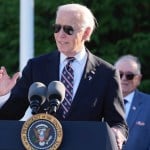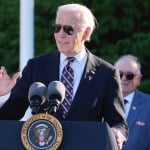The U.S. has appealed to Latin American governments to reject telecoms investment, particularly opposing Huawei, the Chinese tech giant that it argues could open the door to Chinese government spying. Similarly, U.S. officials have raised concerns over the Chancay port’s possible dual-use by Beijing’s navy in the Pacific — a prospect dismissed by Chinese officials.
China “is working to exploit insecurity in our hemisphere,” said U.S. Defense Secretary Lloyd Austin at the Southern Command headquarters in Florida this week, adding that the Asian giant is leveraging the need for investment in the Americas to advance its “malign agenda.”
Despite its objections to Chinese influence, the U.S. hasn’t shown the ability or willingness to build infrastructure like Chancay’s megaport, experts note.
Even when the U.S. government has worked to ensure competitive bidding in Latin American massive public works projects, American companies have refrained from participating, said Benjamin Gedan, director of the Wilson Center’s Latin America Program.
A Kamala Harris administration wouldn’t have changed that, but a Democratic victory would have enabled Biden to speak in Lima with authority about U.S. collaboration to come, such as building regional supply chains, Gedan said.
In sharp contrast to Biden’s alliance-building approach, Trump has vowed to protect American interests and promised more of the same unilateralist action the world saw in his first term, when he staked out a combative stance against foreign competitors and deepened the U.S. trade war with China. ISABEL DEBRE & DAVID BILLER, LIMA, MDT/AP

































